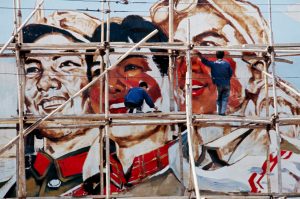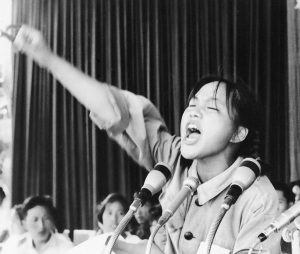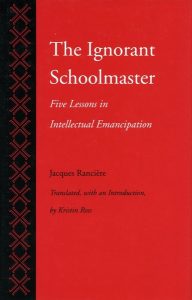I Initially intended to structure my reflection on the course via a dialogue with someone who had not participated in the course; someone else questioning me on the content and process of the course seemed like an effective way of escaping my standard perception of what we had been doing and grasp how other’s might reflect on the project we’ve been engaged in. But I felt somewhat too contrived in the responses I offered and that it was hard to portray what we had been doing in the way I intended to. So, having also tried to construct some kind of quasi-Socratic self-dialogue of questions and answers, which similarly felt somewhat over-written and formulaic, I’ve moved to this current structure.
The course was seemingly built on and unfolded through our ability to individually draw on past experiences, interests and concerns rather than developing from the inside-out via reading lists and strict structures of how we would be interacting; so mimicking that structure of drawing on outside resources to shape the sessions’ content, I’m shaping my reflection via a few outside interests / objects to prompt reflection on what happened within the course. I’ve reflected less on the tensions between process and content, and on the form the course can take; the mistakes we’ve made are fairly clear and the resolutions for them feel, to me, only likely to arise via our collective action rather than any immediate contributions I can make. Every time I think on the first semester of the course, I remember different elements and reflect on it differently, so below is just an image of thought from when I sat down to write.


The Cultural Revolution was a major topic of interest and reading for me throughout last semester, particularly early on, and some of the discussions on the topic were the most interesting and powerful I’ve had while at university; likely on the basis that its such a historically complex, contradictory and historiographically maligned period of history. That I was thinking through the themes, movements and consequences of the Cultural Revolution during the Futures course, and the broader year of 2018 with the Occupation, Student solidarity movement and tumultuousness of global politics and radical movements, is intriguing and offers a unique chance for comparison. The will to draw comparison and lineage with the events of 1968 in Europe were extremely prominent, and cultural memory of the period’s symbolic and discursive were present; yet reflections the Cultural Revolution were nowhere to be seen (at least by me). On the one hand, its clear and understandable why; there was brutal violence throughout the Cultural Revolution, reactionary tendencies that generated new political bureaucracies and state-elite hierarchies.
However, as documented well in Yiching Wu’s Cultural Revolution at the Margins, fringe and ultra-left elements of the Cultural Revolution offered some of the most powerful and truly radical thought and movements of not just China in the 20th century, but the 20th century as a whole. True concern for how to organise society on egalitarian grounds, how to ensure autonomous self-education for all and total freedom from the baggage of past political and social systems motivated swathes of students to act against the conservative elements of the State apparatus. Philosopher-fool Slavoj Zizek in November last semester at a talk in Dundee updated this idea that productivity is at the fringe, reflecting that ‘absolutely nothing interesting happens at Harvard, Cambridge, Oxford etc’ and that intriguing things happen ignored and on the fringe, makes me think very proudly on this course.
Thinking on the Cultural Revolution has made me reflect on the Futures course on two important ways. First, the discussions I’ve had with friends on the cultural revolution, which were honest, complex and highly enjoyable, alongside the questions and concerns were addressing in the Futures course made me understand that for me, its dialogue between equals that is pedagogically most valuable. Strict curriculum, hierarchies of knowledge and teachers and standardised assessment alienate the possibility for discussion on complex (historically, political and morally) topics but open discussion that excludes the domination of thought by specialists, is where I feel I learn the most and most empowered. Being able to freely draw on rigorous academic and nuanced thought alongside truly personal reflections is the utopic aim for education I can relate to. We certainly found it difficult to find a completely satisfying rhythm and flow to all of our sessions and it took a while to get going (having under-estimated the work required for the course) but I think we should be happy that we have constructed a small community through our efforts alone.
Second, some vague parallels between the cultural and social upheaval can be found, particularly regarding authority of knowledge and learning (although of course it would be absurd to push any similarities too far!). We have been committed in our critique and wariness of bureaucracy in education and civil society more broadly; its absurdities, how it empowers certain actors over others and the detrimental impact it has on our ability to relate to one another, and how to instantiate genuine change. Something that seemed to unite us most was a basic emotive disgust at the University’s structures; we all experienced them differently as students and staff but were bound together via our questioning of these structures. Furthermore, much akin to the commitment to ‘new trends of thought’ that students and workers in the Cultural Revolution wished to promote beyond State Orthodoxy, there was no hollow appeals to intellectual authority via constantly deferring to major academic thinkers or dry old revolutionary rhetoric that fails to relate to us in any authentic way. I feel we mostly had complete respect for everyone’s thoughts and reflections, allowed space for fusion of emotional and intellectual perspectives and learnt via relating to one another.
I still hold to my somewhat cringey and vague comment from our last session that rather than necessarily needing to construct an education manifesto from the course, we must ‘become the manifesto’ as individuals and as a new community who have been reshaped and reproduced distinctly via our time in this course. It will be via our actions as we all continue on, maintaining the imprint of this course, that we might hope to make change and alter the future of the university.
Although on the resource list, and one of my favourite books from the most important philosopher for me, I don’t remember every mentioning or attemping to discuss Ranciere’s work. To try and fo rce in a reflection from this book or draw in his ideas felt very contrived and unnecessary; grasping the sessions we had might in some way relate to the radical pedagogies of Jacotot/Ranciere and other thinkers seemed more immediately important than reading their works to the letter.
rce in a reflection from this book or draw in his ideas felt very contrived and unnecessary; grasping the sessions we had might in some way relate to the radical pedagogies of Jacotot/Ranciere and other thinkers seemed more immediately important than reading their works to the letter.
Radical pedagogy was something we were committed to from the very beginning of the course but was never realised via a reading list or group discussion but our own efforts. A commitment to really interrogating and engaging important texts of radical pedagogy is key for next semester, but I don’t think it was too devastating to not all be quoting Freire every other sentence for the first semester.
‘The secret of teaching is that of Universal teaching; learning, repeating, imitating, translating, taking apart, putting back together.’
We all had distinct and potentially contrasting expectations for the course, and many were bound not to be met. Although I had been involved in the planning of the course and the initial discussions about how it should take place and what we might hope to achieve, I felt only that if we could gather people together, prompt discussion on the flaws of the university (and share our experiences of them!) then we would have done quite well; to create a space where we might share experiences from the multiplicity of identities and perspectives was a valuable chance for learning for me. Understanding the university and higher education via class, gender, race and age is essential, but would be incomplete without actual discussions with other students and staff.
That the course is memorable at all seems to show its success; most lectures, tutorials and academic engagements blur into a vague memory of being somewhat intellectual unfulfilled and alienated but the uniqueness of each sessions, with different paces and moods (for better or for worse!). Having a group meditative visioning and discussion was very distinct; truly being able to comfortably offer one’s more obscure and personal expressions has been rare in the space of a classroom. Equally as memorable is the course has required effort. Unlike the effort of making notes or revising, clear and focused effort was necessary to sustain the course and ensure something was gained from it. No goals-oriented studying for some abstract end goal of career success or academic victory was present whatsoever.

Finally, so as to not make this reflection painfully long and repetitive, this generic and naive image of a garden / permaculture project is present as I can reflect on the elements of the course, I’m excited to continue engaging with. Environmentalism and ecology are elements of more radical thought and communities that I’m very periphery too and have never fully grasped; I’m excited to see the work of the permaculture group unfold and develop and substantiate my understanding of their topics beyond a generic and simplistic understanding of the themes and their importance. Gaining insight into a community I feel I should have greater affinity with is an important opportunity. Thinking beyond the immediate environment of standard education within regular formal sites, and how education can actually become embodied through physical activity and environmental concern, is one of the ways I feel I can reshape my expectations about learning and education via this course.



Hi Dante, thanks for sharing your reflection. I can say without doubt that I wasn’t expecting anyone to reflect on comparative elements and similarities between the futures course and the Cultural Revolution, but if anyone was going to, I’m not surprised it was you! ?
Truthfully; I really enjoyed reading this (I even read it twice), and the comparisons you make between lesser known/overlooked fringe/radical thought in 1960’s China and modern pedagogy/aims/experiences of this course. It’s not an area that I know a huge amount about so don’t feel particularly well-placed to offer any meaningful insight/critique into the subject specifically (not actually the point of these, I know), but it did raise various thoughts and questions in my mind as I read. Questions of the intentions/motivations of the radical students and workers in China at the time as opposed to the wide-scale (and much documented) atrocities carried out; the co-opting/bastardisation of radical thought/action by others/elites to further their own ends (will this course be used as a ‘box-ticking’ exercise by management to satisfy a perceived need for ‘engagement’ and ‘change’?) etc; ideas of the most interesting things happening at the edges/peripheries of societies/institutions (is this course on the periphery of the university institution? Even if so, are we part of such a privileged group as students at Edinburgh University that we could never truly claim to be on the periphery of anything!?). These may not fully engage with the depth of thought and knowledge that your reflection displays (and I apologise if so!), but your reflection certainly made me think, which seems apt given the goals of this course 🙂
Despite my now-documented lack of enthusiasm for reading (I’m a bad student) I think it would be interesting for the group to read some of the works you have mentioned here, and I’d encourage/support you to propose this if you think it would be interesting.
Your final reflection on wanting to know more about permaculture/environmentalism etc I found particularly enjoyable. I appreciated your willingness to highlight an area of knowledge that you feel you should be more engaged in and perhaps feel a little guilty about not being as knowledgeable? I think that’s a common experience of education/life that affects most of us and is good to acknowledge – we have so much access to information and there are so many issues of significance but it’s almost impossible to be suitably engaged in everything despite our best efforts etc. As you suggest, the great thing about this course is it offers us the chance to perhaps learn from others about subjects they are passionate about in a pretty unique educational environment!
Thanks again for sharing your reflection, I really enjoyed it 🙂
If I’m being fully honest, I didn’t write my reaction to this piece when we were first meant to because I had no idea what to say. I’m far from well-versed in the Cultural Revolution, but having spent more time learning and moving forwards, your reflection now elicits to me at least – whether you intended for it to or not – the question of where radical ideas come from. If – and by all means I agree with Zizek – no new ideas are coming from the elite universities, and those born in periods of catastrophically violent upheaval are often absented from debate.
I’m not sure how well our consensus models have melded with your ‘utopic aim’ for education, as the community we created takes precedence over the personal, even though the personal can hypothetically veto the community decision, but I suppose this has more to do with debates over course direction than over our actual academic education. I’m glad we had the chance to explore Rancière this semester, as the work was very rewarding, and taught me a lot about the potential radical pedagogy has. At the end of the day, this was about formulating ideas and experimenting for the future, and I feel we’ve done that well.
Thanks for sharing, was a pleasure to read.